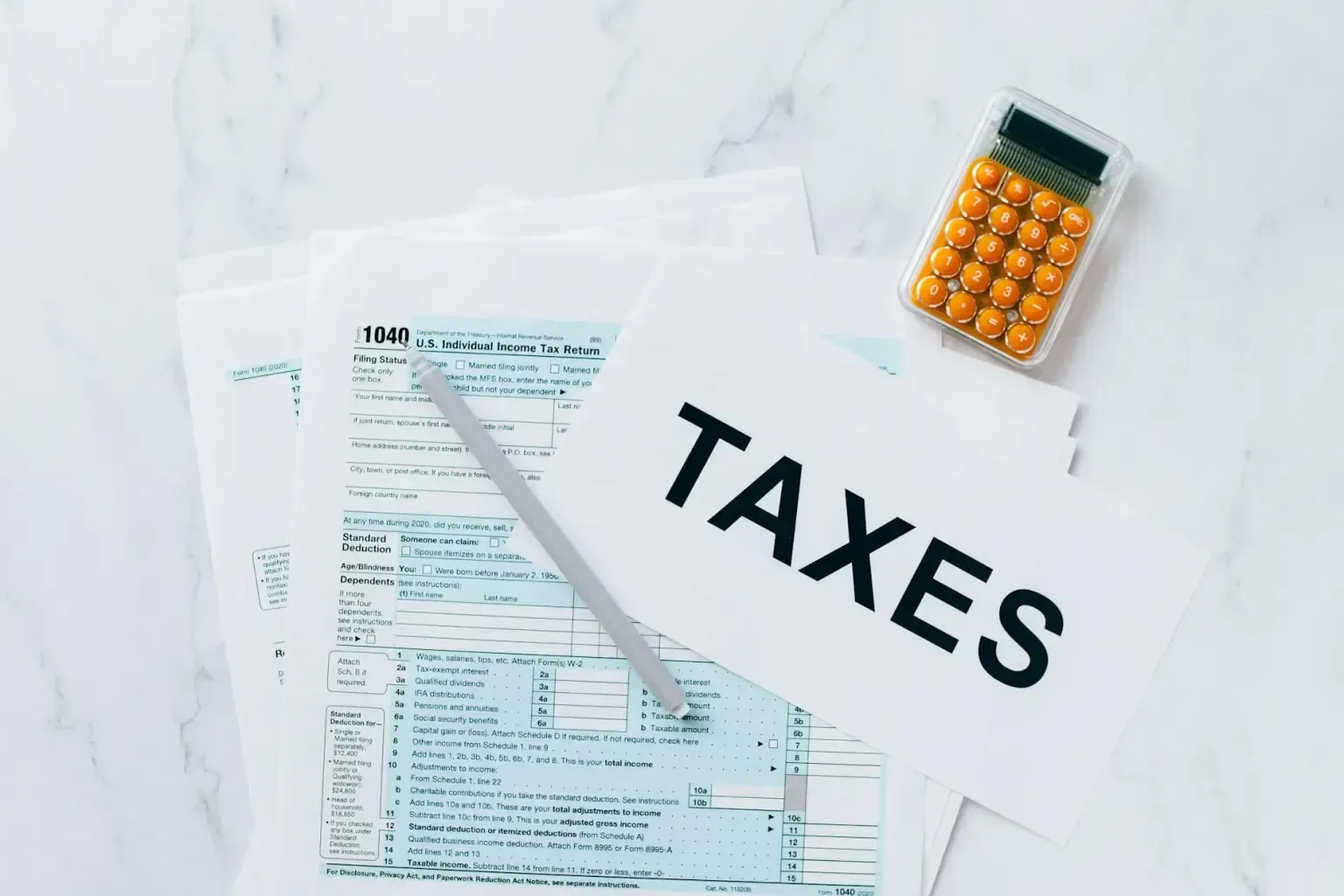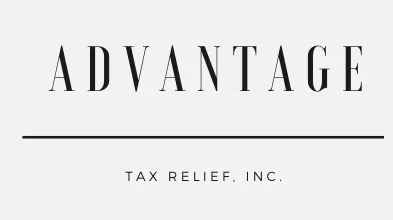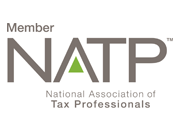3 Steps to Take for Individuals with Unfiled Tax Returns
September 25, 2024
3 Steps to Take for Individuals with Unfiled Tax Returns
Filing tax returns is a legal obligation for anyone and everyone earning an income above a certain amount in the United States.
But life can sometimes throw you curveballs, and filing taxes ends up being on the bottom of your to do list. Out of sight, out of mind, right?
Unfortunately, the IRS does not turn a cheek, and the potential ramifications for not filing your taxes can result in major consequences like penalties, interest charges, and even potential legal problems. The tax professionals at Advantage Tax Relief Inc.
in Itasca, IL have seen it all. If you have unfiled taxes and need help, contact our office today at 630-773-3200
for a free, no-obligation consultation.
For anyone with unfiled tax returns, pay close attention to all of the steps listed in this article.
Understanding Unfiled Tax Returns
Unfiled tax returns refer to the tax forms that individuals are required to submit to the IRS, but have not filed for one or more tax years.
Regardless of the reason, it’s important to not let too much time lapse. It’s always best to address your unfiled tax returns as soon as possible to avoid escalating any potential penalties and legal consequences.
Potential Penalties for Non-Filing
The IRS may impose some significant penalties and consequences for not filing your tax returns. Here are some of the more common penalties that they issue:
- Failure-to-File Penalty: This penalty accrues at a rate of 5% of the unpaid taxes per month, up to a maximum of 25% of the unpaid tax amount. It will apply to the net amount that is due after accounting for any payments and credits.
- Failure-to-Pay Penalty: If taxes are owed but not paid by the filing deadline, a failure-to-pay penalty gets applied. This penalty accrues at 0.5% of the unpaid tax amount per month, also capped at 25%.
- Interest Charges: In addition to penalties, interest accrues on the unpaid tax balance. The interest rate is determined quarterly and compounded daily, reflecting the cost of borrowing as set by the IRS.
- Legal Action: Continuously complying with filing requirements may result in legal action, including IRS collection efforts, levies on wages and bank accounts. In addition, you could also be facing a $10,000 fine, and a year in prison, for every unfiled income tax return, as it’s considered a misdemeanor in the U.S. for not filing a legally due tax return.
Steps to Take for Filing Overdue Tax Returns
While this information may seem alarming or overwhelming, don’t allow it to paralyze you from moving forward. It is crucial to take action.
You want to take care of your unfiled tax returns as soon as possible because the amount you will owe will just continue to grow.
Start taking action with these steps:
Step 1:
Gather Necessary Information
- Income Documents: Collect all W-2s, 1099s, and any other income statements for each tax year.
- Expense Records: Gather any and all receipts and documentation for deductions, credits, and expenses claimed.
- Previous Tax Returns: Obtain copies of previously filed tax returns, if available.
Step 2: Prepare and Submit Delinquent Tax Returns
- Download Forms: Access the necessary IRS forms for each tax year requiring filing.
- Complete Forms: Fill out the appropriate tax forms accurately, reflecting income, deductions, and credits for each year.
- Submit Returns: Mail completed tax returns to the IRS for each applicable tax year. Consider sending them via certified mail to track delivery.
Step 3:
Address Tax Payment Options
- Payment Plans: If taxes are owed but cannot be paid in full, consider applying for a payment plan (installment agreement) with the IRS.
- Offers in Compromise: In cases of significant financial hardship, explore the option of settling tax debts for less than the full amount owed through an Offer in Compromise.
- Penalty Abatement: Request abatement of penalties if reasonable cause can be demonstrated for the failure to file or pay taxes.
How Tax Relief Professionals Can Help
Don’t think that this has to be done all on your own! Tax relief professionals like the ones at Advantage Tax Relief Inc.
in Itasca, IL are a tremendous resource and may even help reduce the total amount owed.
Their expertise goes a long way. Here are just a few of the things that tax relief professionals can assist with:
- Compliance Guidance: Ensure accurate completion and timely submission of delinquent tax returns.
- Negotiation Skills: Negotiate with the IRS on behalf of the taxpayer to secure favorable payment terms or settlement agreements.
- Penalty Relief: Advocate for penalty abatement based on reasonable cause or first-time abatement criteria.
- Financial Analysis: Conduct a financial analysis to determine the most suitable tax resolution strategy, such as installment agreements or Offers in Compromise.
Addressing unfiled tax returns is vital for anyone seeking to regain compliance with IRS requirements.
Luckily, resources are available to you. Tax relief professionals play a crucial role in facilitating compliance, minimizing penalties, and securing favorable tax resolutions.
Contact the tax relief professionals at Advantage Tax Relief Inc.
with locations in Itasca, Naperville, and O’Hare Regent, IL. Call today at (630) 773-3200
to discuss your options.

The IRS in December sent a total of $2.4 billion in "special payments" to roughly 1 million Americans, part of an effort to ensure that people who didn't receive all of their federal stimulus checks during the pandemic would finally get the money. Most eligible taxpayers have already received their Recovery Rebate Credit, as the payment is called, but for those who haven't there is still time to submit a claim. But time is running out, as the deadline to file a claim is April 15. Here's what to know. What to know about the $1,400 IRS stimulus checks The Recovery Rebate Credit was designed for people who didn't get all or some of the stimulus checks when they were issued during the pandemic. Lawmakers authorized three stimulus payments, with two sent in 2020 and a third in 2021. The checks are a holdover from the three stimulus payments that were sent during the pandemic, as some people may not have received some of the money, even if they were eligible. The tax agency disbursed the funds after reviewing internal data that showed many people had filed tax returns but yet didn't claim what is known as the "recovery rebate credit" in 2021. However, non-filers, or those who have not filed Payment amounts will vary by person, with a maximum amount of $1,400 per recipient, the agency said in a statement. Who will get a payment from the IRS? Most taxpayers who were eligible for the stimulus payments have already received them directly, or later through the recovery rebate credit, the IRS said. However, the encourages non-filers to claim credits before the approaching April 15 deadline, as they may be eligible for the the up to $1,400 payment. Who is not eligible for a payment from the IRS? The eligibility requirements to file a claim to the 2021 Recovery Rebate Credit are as follows: -You are a legal U.S. resident. -Either you or someone you claim as a dependent has a valid Social Security Number or Adoption Taxpayer Identification Number issued by the IRS. -You cannot be claimed as a dependent on another taxpayer's 2021 tax return. -See here for more information on eligibility. Do you need to apply for the IRS payment? For those who have not yet received a payment, the answer is yes. While most eligible taxpayers have already received the funds through automatic payments, eligible non-filers will have to file a claim in order to get their payment. In order to claim the 2021 Recovery Rebate Credit, taxpayers must file a 2021 tax return by the April 15, 2025, deadline, "even if their income from a job, business or other source was minimal or non-existent," according to the IRS' website. Detailed information on how to file a claim for the 2021 credit can be found here. When will the IRS send the payments? The tax agency said the checks will be sent in December, with most of the payments arriving by late January 2025. The money will either be automatically direct deposited to the recipient's bank account or will arrive in the mail via a paper check. Contact us today for all your IRS needs! {{content_library.global.phone.148012611}}

Tax season started in late January, but the IRS’s latest statistics show that many Americans are still waiting to file their taxes. As of February 7, 7.7% fewer tax returns have been received by the agency compared to a similar time frame last year, according to its latest data release. While the IRS expects filing numbers to even out, the IRS.gov website has experienced a 40% decline in visits this year to date over last year. Francine Lipman, CPA, a tax law professor at the University of Nevada, Las Vegas, says the reasons could be endless but probably come down to simple procrastination. “Despite all the Super Bowl ads, I don’t believe that tax issues are on people’s radar yet,” adds Lipman. This is surprising considering the political climate, says Jordan Rippy, an accounting professor at Johns Hopkins University’s Carey Business School, who expected to see an uptick in returns filed this year. “Given the general climate surrounding the new administration, I would have expected more anxiety in the general population and a desire to receive refunds more quickly,” she tells Fortune. Elon Musk’s Department of Government Efficiency (DOGE) reportedly visited the IRS on Thursday to begin analyzing the agency’s operations. Senator Ron Wyden (D-OR), ranking member of the Senate Finance Committee, later posted on X that “if your refund is delayed, they could very well be the reason.” Average tax refunds are higher this year so far The rise in electronic filing is one of the biggest changes to the tax system in the last decade. With over 90% of individual taxpayers now filing their returns online, the process has become easier to handle for many Americans. But taxpayers still miss out on over $7 billion in underclaimed and unclaimed tax credits and deductions each year. In the 2025 tax season to date, tax filers have received a 18.6% increase in their average refund amount ($2,065) compared to this time last year ($1,741). The IRS cautions this isn’t a perfect indicator of the final trend in tax refunds, since it’s early in the season. The agency says most refunds are issued within 21 days. In the final analysis, the average refund last year was around $3,138. Compared to 10 years prior, last year’s average rebate was down nearly 30% on an inflation-adjusted basis. Rippy says she is surprised that average tax refunds have not decreased more as Americans realize they can adjust their withholdings and get more money per paycheck throughout the year. “If you receive a large tax refund, what you've essentially done is given a loan to the government over the last year that you didn't have to give them, and you've done that interest-free,” says Rippy. At the same time, she admits that the fact that many Americans expect a big refund year after year is a good thing, as it’s a form of forced savings. While many end up saving their refund, others use it to pay down debt, make a home improvement, or go on vacation.

If you’re dealing with IRS wage garnishment, it can feel like you're trapped in a difficult situation. The IRS can take a portion of your paycheck to satisfy your tax debt, causing serious financial strain. However, you do not have to face this alone. There are steps you can take to stop garnishment and restore control over your finances. This guide will help you understand what wage garnishment is, why it happens, and what actions you can take to end it. Understanding IRS Wage Garnishment Wage garnishment is a legal tool used by the IRS to collect unpaid taxes. Unlike many other types of debt collection, the IRS does not need a court order to garnish your wages. They will send you a Final Notice of Intent to Levy before initiating garnishment, and if you don't act, they will take a portion of your paycheck to pay off your tax debt. How Wage Garnishment Affects You Wage garnishment can create numerous challenges, including: - Loss of Income: With part of your wages withheld, it can be difficult to meet daily living expenses. - Damage to Your Credit: Unresolved tax debts and garnishments can hurt your credit rating, making it difficult to obtain loans or secure favorable financing terms in the future. - Stress and Emotional Toll: The financial pressure can create stress, affecting your mental health and relationships. Professional Impact: If colleagues find out about the garnishment, it could affect your reputation at work. Steps to Take to Stop IRS Wage Garnishment If you’re facing wage garnishment, take action quickly to put an end to it: 1. Respond to IRS Notices Immediately If you receive any IRS notice about garnishment, it's vital to act quickly. Ignoring it will only escalate the situation. Contact the IRS and request a Collection Due Process hearing where you can address the garnishment. 2. Explore Payment Plans and Agreements The IRS offers various options to settle your debt, such as installment agreements or an Offer in Compromise (OIC). These options allow you to repay your debt over time or settle it for less than what you owe. 3. Apply for Hardship Relief If the garnishment is putting you in financial distress, you may qualify for a hardship exemption, which can temporarily stop the garnishment while you work out a solution. 4. Contest the Tax Debt If you believe the IRS has made a mistake in assessing your tax debt, you have the right to dispute it. During this dispute process, garnishment can be put on hold until the matter is resolved. 5. Seek Professional Help Dealing with the IRS alone can be overwhelming. A skilled tax professional can help you navigate the complex process, negotiate with the IRS, and secure the best possible resolution for your situation. Why You Should Work with Advantage Tax Relief The process of stopping IRS wage garnishment requires specialized knowledge and experience. Advantage Tax Relief, located in Itasca, IL, offers over a decade of experience in tax resolution. Their team of experts knows how to work with the IRS to resolve wage garnishment issues and put together a personalized plan for you. Working with Advantage Tax Relief means having a dedicated partner who understands the nuances of IRS procedures and will advocate on your behalf to reach a favorable resolution. Their team will help you explore all options, including negotiating payment plans, filing for hardship relief, or contesting tax assessments. Take Action Today Don’t let wage garnishment control your life. Contact Advantage Tax Relief in Itasca, IL at 630-773-3200 for a consultation. Their team is ready to guide you through this process, offering the help you need to regain control of your finances and find relief from the IRS.







Share On: